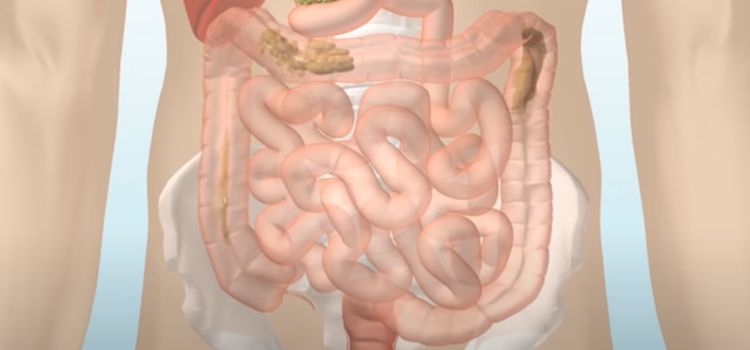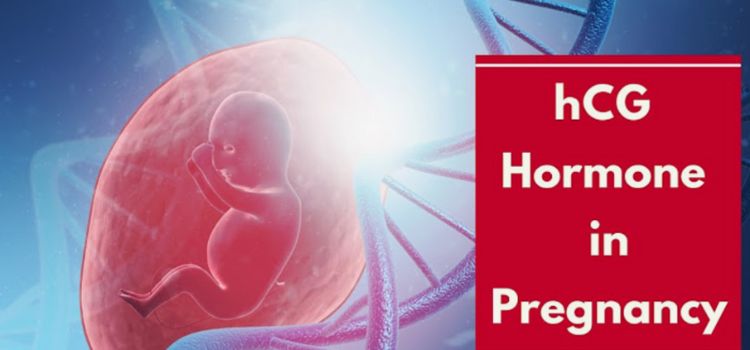Yes, stomach growling can be a sign of early pregnancy due to hormonal changes. Stomach growling, also known as borborygmus, is a natural bodily function that occurs when gas and fluid move through the intestines.

When I was in the early stages of my pregnancy, I noticed some unexpected changes in my body. One of the most surprising was the increased growling of my stomach.
It turns out that the hormonal shifts happening inside me were affecting my digestion, causing the muscles in my digestive tract to relax. This led to slower digestion and more frequent, louder growling sounds.
Though a growling stomach isn’t a definitive sign of pregnancy, it was one of the early symptoms I experienced. If you think you might be pregnant, it’s a good idea to take a pregnancy test or talk to a healthcare professional for confirmation.
Understanding The Mechanism Of Stomach Growling

Stomach growling is a common phenomenon caused by digestion, gas movement, or hunger. While it can occur in early pregnancy due to increased blood flow and hormonal changes, it is not necessarily a reliable indicator. Understanding the mechanism behind stomach growling helps to differentiate potential causes.
stomach growling, scientifically known as borborygmi, is a natural and common occurrence for many reasons. In this section, we’ll delve into the factors that contribute to stomach growling, the role of digestion in this process, and the link between hormonal changes and stomach growling in early pregnancy.
Factors That Contribute To Stomach Growling
Stomach growling can be influenced by a variety of factors. Here are some key contributors:
- Hunger: When your stomach is empty, it tends to produce more gas, which can lead to the rumbling noises we associate with growling.
- Digestive activities: The process of breaking down food involves the contraction of muscles in your stomach and intestines. These contractions, known as peristalsis, can result in audible sounds.
- Swallowed air: Consuming food or drinks quickly, chewing gum, or even talking while eating can cause the unintentional ingestion of air. This excess air can lead to increased stomach noises.
- Food digestion: Certain foods, such as those high in carbohydrates or fiber, can create more gas during digestion. This increased gas production can contribute to louder stomach growling.
- Stress and anxiety: Emotional factors like stress and anxiety can affect the gastrointestinal system, leading to increased stomach activity and potentially louder growling noises.
The Role Of Digestion In Stomach Growling
Understanding the relationship between digestion and stomach growling is essential. Here’s what you should know:
- Digestion begins in the mouth, where saliva helps break down food. As you continue to chew and swallow, the food travels down the esophagus and into your stomach.
- Once in the stomach, the food mixes with stomach acid and digestive enzymes to further break it down. This process involves muscular contractions in the stomach wall, which aid in digestion but can also create noise.
- As the partially digested food moves into the small intestine, additional digestive enzymes break it down further. These enzymes help extract nutrients, leaving behind waste products.
- Finally, the waste products pass into the large intestine, where water absorption occurs, and stool is formed. Throughout this entire digestive journey, the movements and activities of the digestive system can result in stomach growling.
The Link Between Hormonal Changes And Stomach Growling In Early Pregnancy
Interestingly, hormonal changes during early pregnancy can also be a factor contributing to stomach growling. Here’s why:
- Pregnancy hormones, particularly progesterone, play a crucial role in relaxing the muscles of the digestive system. This relaxation can slow down the movement of food through the digestive tract, potentially leading to more pronounced stomach growling noises.
- Additionally, hormonal changes can increase the production of gastric acid, which aids in the digestion process. This increased acid production can also contribute to stomach growling sounds.
By understanding the various factors that contribute to stomach growling, the role of digestion in this process, and the link between hormonal changes and stomach growling in early pregnancy, you can now have a clearer picture of why it occurs.
Remember, stomach growling is a normal bodily function, and in most cases, it’s nothing to worry about. So the next time your stomach starts rumbling, embrace it as a sign that your digestive system is hard at work.
Does Stomach Growling As A Sign Of Pregnancy
Have you ever wondered if stomach growling could be a sign of early pregnancy? Many women believe that their gurgling bellies could be a subtle indicator of a little one on the way. We will examine the lack of scientific evidence supporting this claim and explore other plausible explanations for stomach growling in early pregnancy.
Additionally, we will delve into the changes that occur in a woman’s body during pregnancy and how they can impact digestion.
Examining The Lack Of Scientific Evidence Supporting The Claim
Despite the popular belief that stomach growling is a sign of early pregnancy, there is a scarcity of scientific evidence to support this claim. While pregnancy can certainly bring about various bodily changes, stomach noises alone cannot reliably indicate pregnancy.
It is essential to rely on more concrete signs, such as a missed period, breast tenderness, and fatigue, or consult a medical professional for an accurate diagnosis.
Other Plausible Explanations For Stomach Growling In Early Pregnancy
While stomach growling may not be a definitive sign of early pregnancy, it is worth exploring other potential causes that may contribute to this phenomenon. Some possible explanations include:
- Increased hunger: Pregnancy often leads to changes in appetite and increased hunger due to the growing demands of the developing fetus. This increased hunger can result in more frequent stomach contractions, leading to stomach growling.
- Hormonal changes: Pregnancy triggers significant hormonal shifts in a woman’s body. These hormonal fluctuations can affect gastrointestinal activity, leading to increased stomach noises.
- Changes in digestion: During pregnancy, the body produces higher levels of progesterone, which relaxes smooth muscles, including those in the digestive tract. This relaxation can slow down digestion, causing food to remain in the stomach longer, potentially leading to increased stomach noises.
Understanding The Body’s Changes During Pregnancy And Their Impact On Digestion
Pregnancy is a transformative time for a woman’s body, and the changes it undergoes can have substantial effects on digestion. Here are a few key points to consider:
- Hormonal changes: As mentioned earlier, hormonal fluctuations during pregnancy can impact digestion by either speeding up or slowing down the digestive process.
- Increased blood flow: During pregnancy, the body directs more blood flow to the uterus to support the growing fetus. This diversion of blood flow can affect digestion by altering the rate at which food is broken down and absorbed.
- Growing uterus: As the uterus expands to accommodate the developing baby, it can put pressure on the adjacent organs, including the stomach. This pressure can cause discomfort and potentially lead to increased stomach growling.
Stomach growling alone is not a reliable indicator of early pregnancy. While it is natural for women to seek signs and symptoms of pregnancy, it is crucial to rely on more definitive indicators or consult a healthcare professional for an accurate diagnosis.
Furthermore, understanding the body’s changes during pregnancy and their potential impact on digestion can help explain stomach growling in early pregnancy.
Common Symptoms And Indicators Of Early Pregnancy

Stomach growling is not typically a sign of early pregnancy. Instead, common symptoms include missed periods, breast tenderness, and nausea. Additionally, fatigue and frequent urination may also indicate pregnancy.
When it comes to early pregnancy, many women experience a range of symptoms that can be both exciting and overwhelming. It’s important to remember that each individual’s experience may vary, but there are some common symptoms and indicators that can help you determine whether or not you may be pregnant.
Let’s take a closer look at these signs:
Nausea, Morning Sickness, And Their Association With Pregnancy
Nausea and morning sickness are often associated with early pregnancy. These symptoms can occur as early as two weeks after conception and are caused by a rise in pregnancy hormones.
Morning sickness typically involves feelings of nausea and vomiting, although it can occur at any time of the day. While not all pregnant women will experience morning sickness, it is a common indicator of early pregnancy.
Fatigue, Breast Tenderness, And Other Signs To Watch Out For
- Fatigue is another common symptom of early pregnancy. Many women find themselves feeling more tired than usual, even in the early weeks.
- Breast tenderness is also a common symptom of early pregnancy. Your breasts may feel swollen, sensitive, or even tingly.
- Frequent urination is another sign to watch out for. As the body changes during pregnancy, the need to urinate more frequently can become noticeable.
- Food cravings and aversions are also common in early pregnancy. You might find yourself craving certain types of food or having strong aversions to others.
- Mood swings and emotional changes can also occur during early pregnancy. Hormonal fluctuations can lead to heightened emotions and mood swings.
- Missed periods are perhaps the most well-known indicator of pregnancy. If your period is late and you are experiencing other symptoms, it may be worth considering a pregnancy test.
Remember, it’s important to listen to your body and consult with a healthcare professional if you believe you may be pregnant. While these symptoms can be indicators of early pregnancy, they can also have other causes.
If you suspect you may be pregnant, a visit to your healthcare provider can provide clarity and support.
The Role Of Hormones In Early Pregnancy

Hormones play a crucial role in early pregnancy, but stomach growling is not a definitive sign of pregnancy.
Exploring The Shifts In Hormone Levels During Pregnancy
During pregnancy, the body undergoes various hormonal changes that are crucial for supporting the growth and development of the baby. These hormonal shifts play a vital role in preparing the body for the upcoming journey of motherhood.
Let’s delve into the specific changes in hormone levels that occur during early pregnancy:
- Human chorionic gonadotropin (hCG): This hormone is produced by the placenta after implantation occurs. It helps maintain the corpus luteum, a temporary endocrine gland that supports the production of progesterone. Rising levels of hCG are often the first sign of pregnancy.
- Progesterone: One of the main hormones involved in early pregnancy, progesterone supports the growth of the embryo and helps maintain the uterine lining. Its levels rise steadily throughout pregnancy.
- Estrogen: Another essential hormone during pregnancy, estrogen helps regulate the menstrual cycle and plays a part in fetal growth and development. Its levels also increase significantly during pregnancy.
- Relaxin: As the name suggests, this hormone relaxes the muscles, ligaments, and joints in the pelvic area, allowing for easier passage of the baby during labor.
- Prolactin: Although primarily associated with breastfeeding, prolactin levels begin to rise during pregnancy, preparing the breasts for milk production.
The Effect Of Hormonal Changes On The Gastrointestinal System
Hormonal changes during early pregnancy can have various effects on the gastrointestinal (GI) system. These changes are the result of the body adapting to the growing baby’s nutritional needs and the demands of pregnancy. Here are some ways hormonal changes can lead to GI discomfort:
- Slowed digestion: Increased levels of progesterone relax the smooth muscles in the GI tract, causing food to move more slowly through the digestive system. This can lead to constipation and bloating.
- Increased stomach acid production: Hormonal changes can stimulate the production of stomach acid, which may result in heartburn and acid reflux.
- Changes in appetite and cravings: Fluctuating hormone levels can influence appetite and cravings, leading to changes in food preferences and eating patterns during early pregnancy.
- Nausea and vomiting: The infamous “morning sickness” experienced by many pregnant women is thought to be linked to hormonal changes, particularly increased levels of hCG.
- Sensitivity to smells and tastes: Hormonal fluctuations can heighten the senses of smell and taste, making certain foods or odors more unpleasant than usual.
How Hormones Can Potentially Influence Stomach Growling
Stomach growling, medically known as borborygmi, is the rumbling noise produced by the movement of gas and fluids in the digestive system. While stomach growling is not directly caused by hormonal changes, there are some ways hormones can potentially influence its occurrence during early pregnancy:
- Altered digestion: The slowed digestion caused by increased progesterone levels can result in a buildup of gas and fluids in the GI tract. This can contribute to increased stomach growling.
- Changes in eating patterns: Hormonal fluctuations may affect appetite and eating habits, leading to irregular meal timings or skipping meals. This can result in hunger pangs and increased stomach growling.
- Sensitivity to smells and tastes: As mentioned earlier, hormones can heighten the senses of smell and taste. Strong smells or certain food odors may trigger a hunger response, leading to stomach growling.
While stomach growling is a common bodily function that occurs in both pregnant and non-pregnant individuals, its occurrence during early pregnancy can be attributed to the hormonal changes and bodily adaptations taking place.
Pregnancy And Digestive System Changes
During pregnancy, the body undergoes numerous hormonal changes and adjustments to accommodate the growing fetus. These changes can also have a significant impact on the digestive system, leading to various symptoms and discomforts.
In this section, we will discuss the effects of pregnancy on the digestive system, specifically focusing on the slowed digestion and hormonal changes that may contribute to stomach growling.
Discussing The Impact Of Pregnancy On The Digestive System
Increased levels of the hormone progesterone can cause the muscles in the digestive tract to relax. This relaxation can lead to a slower digestion process, as food takes longer to pass through the gastrointestinal system.
The growing uterus puts pressure on the stomach and intestines, further slowing down digestion. This can result in constipation, bloating, and stomach discomfort.
The liver may produce excess bile during pregnancy, which can contribute to nausea and vomiting commonly experienced in the early stages of pregnancy.
Slowed Digestion And Its Potential Connection To Stomach Growling
Slowed digestion can result in the accumulation of gas and food in the digestive system, leading to increased stomach growling sounds. These sounds occur as the muscles of the intestinal wall contract and move food and gas along the gastrointestinal tract.
The increased production of gas during pregnancy, combined with delayed digestion, can contribute to more frequent and louder stomach growling episodes.
It is important to note that stomach growling alone is not a definitive sign of pregnancy, as it can occur for various reasons such as hunger, gas, or an empty stomach.
Hormonal Changes And Their Effect On Stomach Acids
Pregnancy hormones, particularly progesterone, can affect the production of stomach acids. Progesterone causes relaxation of the lower esophageal sphincter (LES), the valve that separates the stomach from the esophagus.
This relaxation can allow stomach acids to flow back into the esophagus, leading to heartburn and acid reflux. Although stomach acids do not directly cause stomach growling, the discomfort associated with acid reflux may contribute to increased digestive noises.
Pregnancy can bring about significant changes to the digestive system, including slowed digestion and alterations in stomach acid production. These changes can lead to symptoms such as stomach growling, constipation, bloating, and heartburn.
While stomach growling alone is not a reliable indicator of early pregnancy, it is essential to listen to your body and consult with a healthcare professional for a proper diagnosis.
Alleviating Digestive Discomfort During Pregnancy
Stomach growling during early pregnancy can be a normal occurrence due to increased hormones and changes in digestion. To alleviate digestive discomfort, it’s important to eat small, frequent meals, stay hydrated, and consume fiber-rich foods.
Regular exercise and avoiding triggers like fatty or spicy foods can also help manage symptoms.
Tips For Managing Stomach Growling And Other Digestive Issues
- Eat smaller, frequent meals: Instead of three large meals, opt for five to six smaller meals throughout the day. This helps prevent stomach growling and keeps your digestive system functioning optimally.
- Stay hydrated: Drink plenty of water between meals to aid digestion and prevent stomach discomfort.
- Chew food thoroughly: Take the time to chew your food properly before swallowing. This allows for better digestion and reduces the likelihood of stomach growling.
- Avoid trigger foods: Certain foods can irritate the digestive system, leading to stomach growling and discomfort. Limit your consumption of spicy, greasy, and fatty foods.
- Include fiber-rich foods: Incorporate fruits, vegetables, and whole grains in your diet. These foods promote healthy digestion and prevent constipation.
- Avoid eating before bedtime: Give your body ample time to digest food before lying down to sleep. This can help minimize stomach growling during the night.
- Practice stress management techniques: Stress can exacerbate digestive issues. Try relaxation techniques such as deep breathing exercises, meditation, or yoga to reduce stress levels and improve digestion.
Dietary Modifications To Aid Digestion
- Consume probiotic-rich foods: Foods like yogurt, kefir, sauerkraut, and kimchi contain beneficial bacteria that support a healthy gut and improve digestion.
- Limit caffeine intake: Too much caffeine can stimulate the digestive system and lead to stomach discomfort. Reduce your intake of coffee, tea, and other caffeinated beverages.
- Incorporate ginger: Ginger has natural anti-inflammatory properties that can alleviate digestive discomfort. Add ginger to your meals or drink ginger tea to soothe your stomach.
- Include digestive enzymes: Certain fruits like pineapple and papaya contain enzymes that aid digestion. Adding these fruits to your diet can reduce stomach growling and improve overall digestion.
Effective Relaxation Techniques To Reduce Stress And Improve Digestion
- Practice deep breathing: Take slow, deep breaths to activate the relaxation response in your body. This can help reduce stress and improve digestion.
- Engage in regular exercise: Physical activity not only helps relieve stress but also promotes healthy digestion. Aim for at least 30 minutes of exercise daily.
- Get enough sleep: Inadequate sleep can increase stress levels and negatively impact digestion. Prioritize getting 7-8 hours of quality sleep each night.
- Try mindfulness meditation: Mindfulness meditation helps calm the mind and reduces stress. This can have a positive impact on your digestive system.
- Consider acupuncture: Acupuncture is a traditional Chinese therapy that can help regulate digestion and alleviate symptoms such as stomach growling.
By following these tips and making dietary modifications, you can alleviate stomach growling and other digestive discomfort during pregnancy.
When To Seek Medical Advice
Experiencing stomach growling can be a common symptom in early pregnancy. If you’re unsure, it’s best to seek medical advice to confirm your suspicions and ensure the health of both you and your baby.
Recognizing When Stomach Growling May Be A Cause For Concern
- Unusual intensity or frequency: If your stomach growling becomes excessively loud or occurs frequently throughout the day, it could be a sign of an underlying condition that requires medical attention.
- Severe abdominal pain: If your stomach growling is accompanied by severe pain, it may indicate a more serious issue that needs immediate evaluation by a healthcare professional.
- Vomiting or diarrhea: Stomach growling accompanied by vomiting or diarrhea could be a sign of an infection or gastrointestinal disorder that requires medical intervention.
- Unexplained weight loss: If your stomach growling is accompanied by unexplained weight loss, it could be indicative of a more serious underlying problem that needs to be addressed by a healthcare provider.
Differentiating Normal Pregnancy Symptoms From Underlying Conditions
- Normal pregnancy symptoms: It is common for pregnant women to experience stomach growling due to increased hormone levels and changes in digestion. This is typically not a cause for concern and can be managed with dietary adjustments and lifestyle changes.
- Underlying conditions: In some cases, stomach growling during early pregnancy could be a symptom of an underlying condition such as irritable bowel syndrome (IBS), gastritis, or food intolerances. If you experience severe or persistent symptoms, it is important to consult with a healthcare professional for proper evaluation and diagnosis.
Consulting A Healthcare Professional For Proper Evaluation And Guidance
- Schedule an appointment: If you have concerns about your stomach growling during early pregnancy, it is advisable to schedule an appointment with your healthcare provider. They can perform a thorough evaluation, including a medical history review and a physical examination.
- Diagnostic tests: Depending on your symptoms, your healthcare professional may order diagnostic tests such as blood work, ultrasound, or a stool sample analysis to rule out any underlying conditions or infections that could be causing the stomach growling.
- Treatment and guidance: Once a diagnosis is made, your healthcare provider will provide appropriate treatment options and guidance to manage your symptoms and ensure the health and well-being of both you and your baby.
Remember, it is important to trust your instincts and seek medical advice if you have any concerns or if your stomach growling becomes severe or persists for an extended period of time. Your healthcare provider is the best resource to provide accurate evaluation, diagnosis, and management of your symptoms during early pregnancy.
Frequently Asked Questions Of Is Stomach Growling A Sign Of Early Pregnancy
Why Does My Stomach Growl When I’M Not Hungry, Am I Pregnant?
Stomach growling can occur even when not hungry and does not necessarily indicate pregnancy.
Can Pregnancy Cause Rumbling?
Yes, pregnancy can cause rumbling in the stomach due to hormonal changes and increased blood flow.
Is A Rumbling Stomach A Sign Of Period?
A rumbling stomach is not typically a sign of period. Period symptoms usually include cramps, bloating, and mood swings.
What Does Your Stomach Feel Like In Early Pregnancy?
In early pregnancy, your stomach may feel different, such as bloating or mild cramps.
Conclusion
Stomach growling was a common symptom during my pregnancy, but it’s not a sure sign of early pregnancy. The hormonal changes and increased blood flow to the reproductive organs can affect the digestive system, leading to more frequent stomach noises.
However, other factors such as hunger, gas, or gastrointestinal issues can also contribute to stomach growling. It is important to consider other signs and symptoms of early pregnancy, such as missed periods, breast tenderness, nausea, and fatigue, in conjunction with stomach growling.
Additionally, it is recommended to take a pregnancy test or consult a healthcare professional for a confirmed diagnosis. Understanding the various changes and symptoms associated with early pregnancy can help individuals navigate this exciting and transformative time in their lives.
Remember to listen to your body and seek medical guidance if you have any concerns or questions.
Leave a Reply